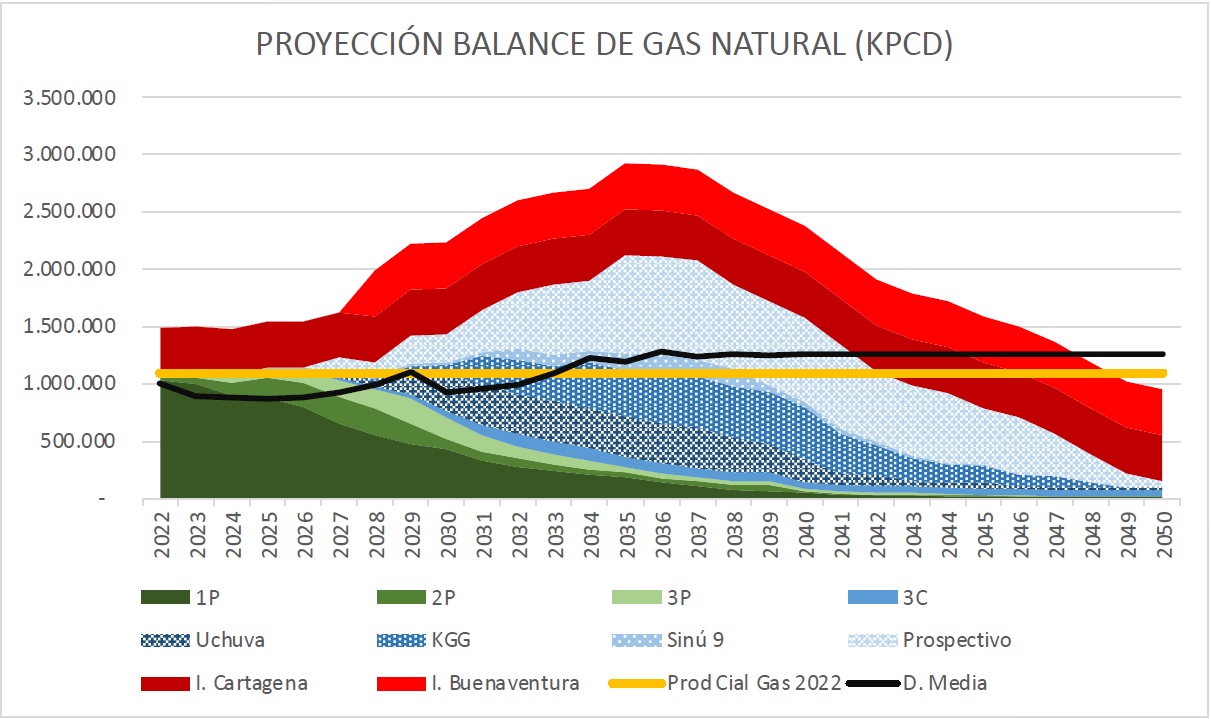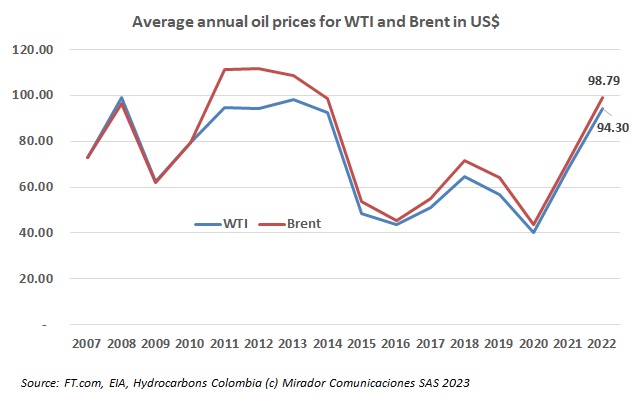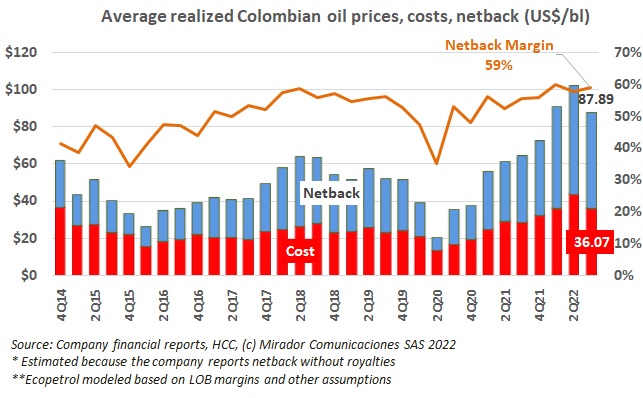This week I should have published an Analyst’s Desk i.e. quantitative article but Minister Vélez keeps the issue of gas reserves and new contracts on the front burner of Colombian politics and I could not resist commenting. By the time the next What We Think slot comes up, who knows what she will have said or what government policy might be?
Colombia’s President Gustavo Petro says he admires his Mexican peer, Andrés Manuel López Obrador, better known as AMLO. We hope Petro chooses what he learns wisely and not tempted to apply AMLO’s strategy for Pemex to Ecopetrol.

This chart comes from a MinEnergia study released just before Christmas. I would love this graph to be true. Really. No need for gas imports until 2042? Export capability until that time? Fantastic! Don’t get me wrong.

“Reyes” have passed, marking the end of the holiday period in Colombia. Nothing left to do but start 2023 and, for Hydrocarbons Colombia, to make some bold assertions, almost certain to be wrong (if past performance is a guide). As always, I hope I err on the side of conservatism.
Being December, this month normally has diminished expectations for progress on any issue. Traditionally, the political and judicial branches shut down around the 15th and nothing much happens until after “Reyes” the holiday corresponding to the Epiphany in Anglo-Saxon countries and which Colombia celebrates on the Monday closest to January 6th. On December 12th, the government and the ELN released a brief press release with limited, mostly procedural, agreements and shut down for the holidays. Then things really started to happen.
This is the last long essay before the holidays and usually I do a “Year in Review”. But we just did a “Petro 100 days” a few weeks ago and we wrapped up the Duque presidency from an oil and gas perspective in July. There frankly is not much new to say looking backwards, so I decided to look forwards somewhat. I attended the Parex Capital Markets Day last week and it got me thinking about why companies invest here.

Oil prices fell in 3Q22 (you knew that) and so, as a consequence did netback. The good news is that margins have held largely constant this year, even up very slightly on average in the past quarter. As always we repeat the “EPA caveat” that individual company results may vary from this cross-industry comparison.
In a huge sunlight meeting room, in the Hotel Humboldt, high above Caracas, peace talks with the ELN kicked off on the 21st of November. The parties even announced initial, albeit mostly symbolic, agreements. Colombians celebrate small steps but the country has a long way to go.

The lead graph shows our annualized data for the evolution of Ecopetrol’s Net Income by Line of Business (LoB). The NOC has only reported through 3Q22 but we do a simple straight-line projection to compare to prior years. Barring some unforeseen implosion, shareholders can expect a record year for earnings driven by the E&P business. These results could not have come at a better time.
If, as expected, you read this in the Tuesday, November 15th 2022 newsletter, then Gustavo Petro celebrates his 100th day as President of Colombia. A Petro presidency was always going to be challenging but we do not think anyone anticipated the speed of the roller coaster we ride.
Like many things in this polarized world we now live in, most, perhaps all, Colombians fall into one of two camps: those who think Petro is a disaster and those who think there have been hiccups but he has brought about more change in three months than most presidents in three years. And like most things in this polarized world we now live in, both viewpoints contain elements of truth.